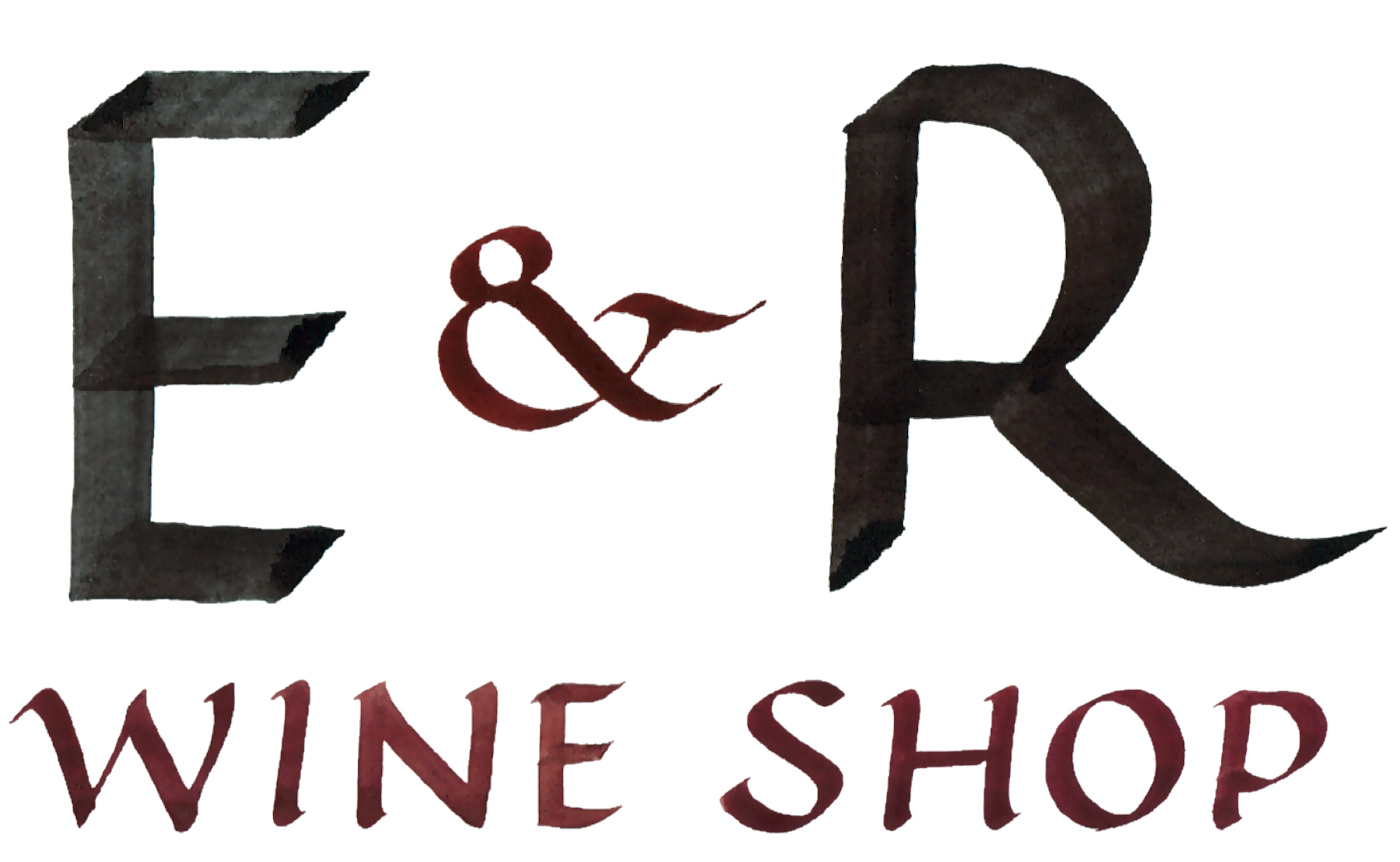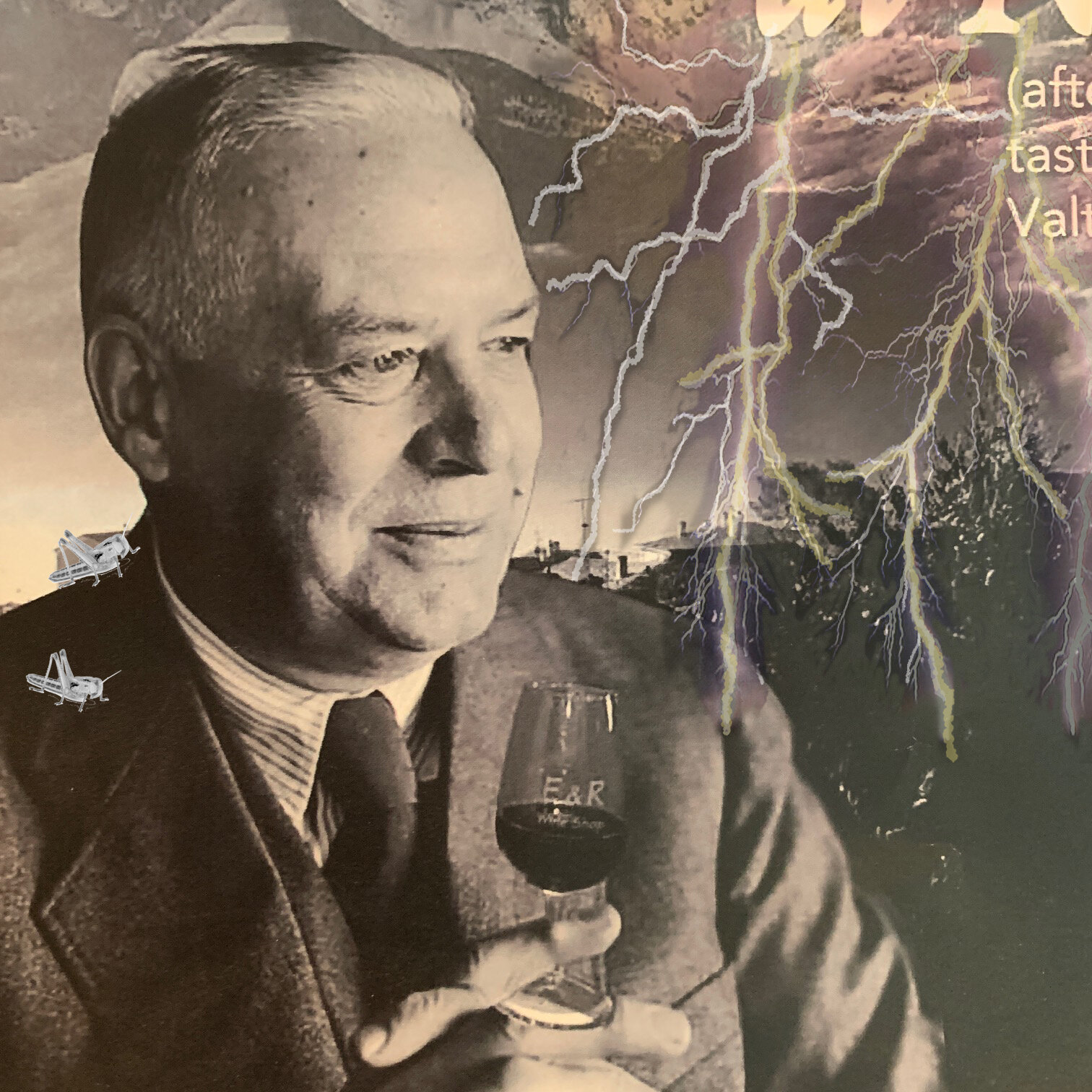WINE MINUS Ø - OCTOBER 2020: Acts of God
The poet Wallace Stevens (wanna be club member): “When the blackbird flew out of sight, it marked the edge, of one of many circles.”
The theme for the inaugural Midnight Correspondence came without much thinking, or frankly, choice. Our minds this harvest have been entirely preoccupied by a collective of blazing force majeures which mercilessly threaten the security of our friends, families, and communities and challenge the viability of a years’ effort in the vineyard. Winegrowing is an inherently Sisyphean endeavor, but there is something particularly calamitous about an invisible god pressing its thumb on the boulder just as we reach the crest of the hill.
The impact that wildfires can have on the quality of a season’s fruit creates a particular crisis of ethos and philosophy for producers who align with the natural wine movement. Decades of research - primarily based in Australia and California - have provided modern winemakers with a toolkit of interventions to navigate the impact of wildfire smoke, including strategies like treating juice with activated carbon or sending finished wines through reverse osmosis. To the natural producer, most of these tools and techniques amount to an unacceptable compromise of their fundamental identity and purpose.
Wildfires are only one of countless “Acts of God” that might face a winegrower in a given season: microbiological blooms, pandemics, floods, earthquakes, volcanic eruptions, frost, hail, wind storms etc., can all have jarring, often inexorable implications for a vintage. The conventional mentality is to feather the edges in order to minimize or eliminate the perception of these events, but whether conventional or natural, no winemaker has a magic wand and every action taken to alter a wine is an exercise in risk and reward. In pursuit of honest, communicative wine above all else, adherents to the natural philosophy accept different kinds of risks and expect different rewards. Their toolkit may be less extensive, but the decisions they have to make in order to craft wines of quality still require rigor, creativity and acceptance.
This season in Oregon, we’ve seen winegrowers elect to pick early and press fast and light, while others chose to leave fruit on the vine as long as possible in to develop enough ripeness and complexity to integrate any smoke impact. Some winemakers destemmed significantly more than normal, while others theorize that stems might soak up more giacols than they contribute. It may not be a straightforward vintage. The critics may go ahead and write off some wines of 2020, but we know our community of winegrowers and maintain complete confidence in their determination and spirit of invention. Natural winemakers in general may not have agency to eliminate all perceptible indications of an adverse season, but if the goal is to produce wines that articulate time and place, grape and ground, then bottles made in spite of God may just prove to be some of the most fabled.
For the first Wine Minus Ø club offering, we have selected natural wines produced in the face of mighty forces. They hail from producers near and far and include wines made in fire affected vintages past. For those of us who have recently experienced the same environmental extremes as Oregon’s winegrapes at harvest, we hope this selection stimulates reflection on how the conditions of any given season become integrated and translated in a bottle of wine.
MIDNIGHT CORRESPONDENCE SELECTIONS, OCTOBER 2020
Coturri Sonoma Valley Brutal Red Wine 2017
Act of God: Wildfire Season 2017 - Sonoma, CA
There is an art to leaning in.
Analemma Mosier Hills Estate Tinto Red Wine 2017
Act of God: Wildfire Season 2017 - Columbia Gorge, OR
While any impact from smoke, if it exists in this wine, is so nicely integrated as to feel seamless, different components of the blend were harvested throughout the weeks of sun-reddening, lingering-haze from the Eagle Creek Fire. It was a year of many new, now familiar questions: How close is too close? How diffuse is diffuse enough?
Maurer Orion 2017
Act of God: Microbiological Bloom, Szabadka, Serbia
Oszkár Maurer has only had flor develop on his wine once before and it was less successful -- failing to go fully dry. In this vintage there was also a substantial amount of botrytis (around 25% he says), which outside of those few micro-climate zones is somewhat of an unanticipated miracle/risk to begin with. This wine was macerated for thirteen days, and it took 19x months to go fully dry.
Fattoria Coroncino Verdicchio dei Castelli di Jesi Classico Superiore "Il Bacco" 2018
Act of God: Climate Change, Castelli di Jesi, Marche
The designation “Superiore” for Verdicchio dei Castelli di Jesi is reserved for wines that achieve a minimum level of alcohol. In the modern Marche, however, this is hardly an issue as warmer temperatures mean ripening is more easily achieved.
SKINNY DIPPING IN THE WATERTOWER SELECTIONS, OCTOBER 2020
Quinta do Montalto Nao Condenado Branco 2018
Johan Vineyards Piquette 2019
Ca'Liptra Marche Rosso IGT Amista 2018
*Wildfires have had devastating and far-reaching affects across the west coast this year. Like so many others watching, we are heartbroken to see vineyards, homes, and wild spaces destroyed. If you are compelled to learn more and contribute help, here are a couple of resources we have found useful:
Center for Climate & Energy Solutions
Oregon Wildfire Relief Fund
Sonoma County Winegrowers Farmworker Resiliency Fund
Click on each wine for more detail.

